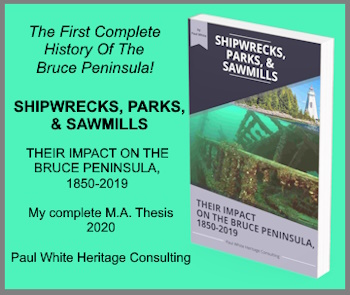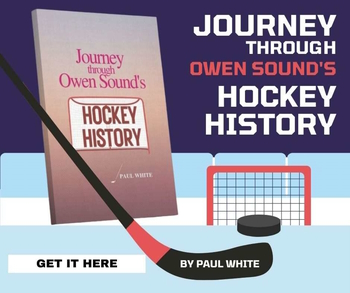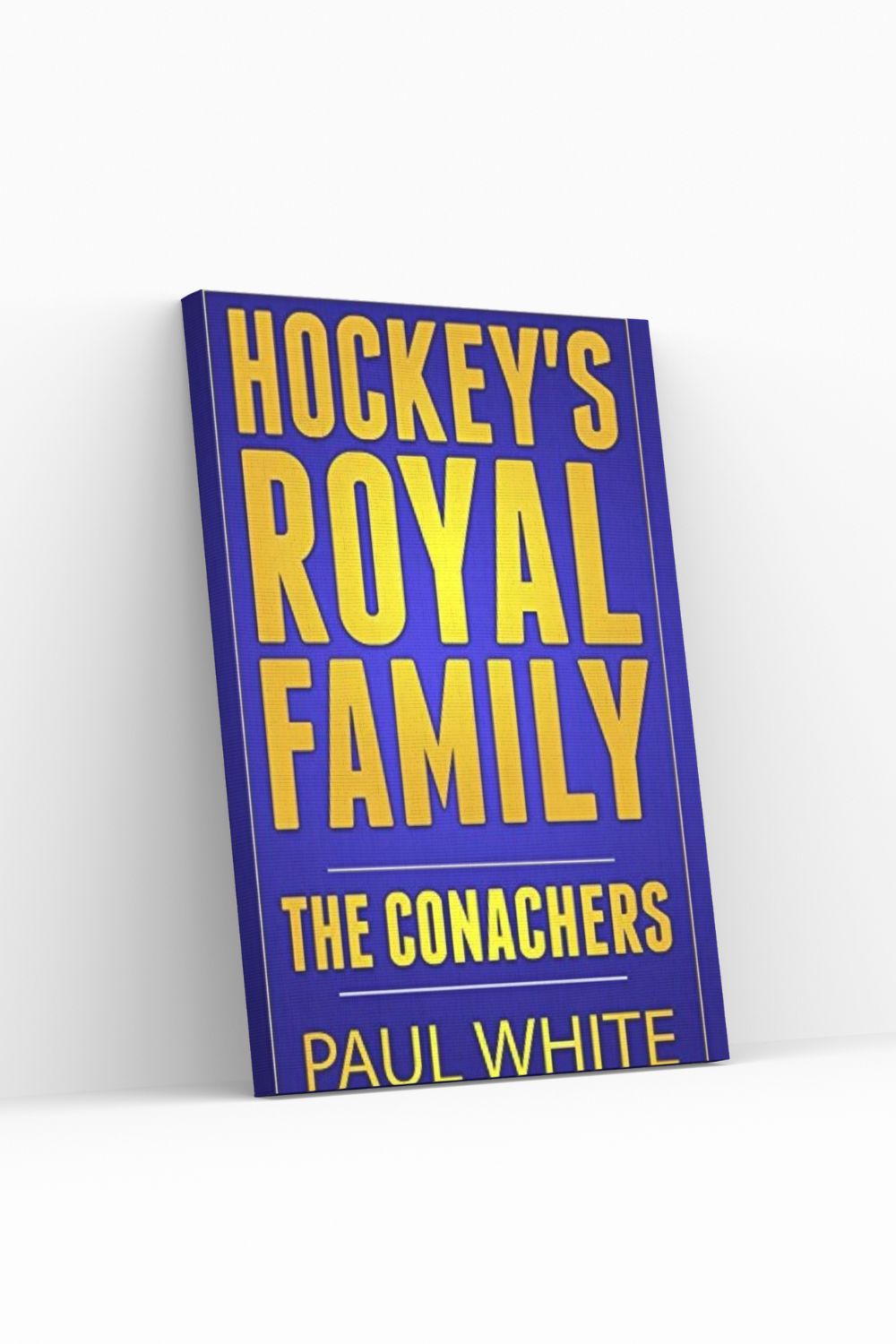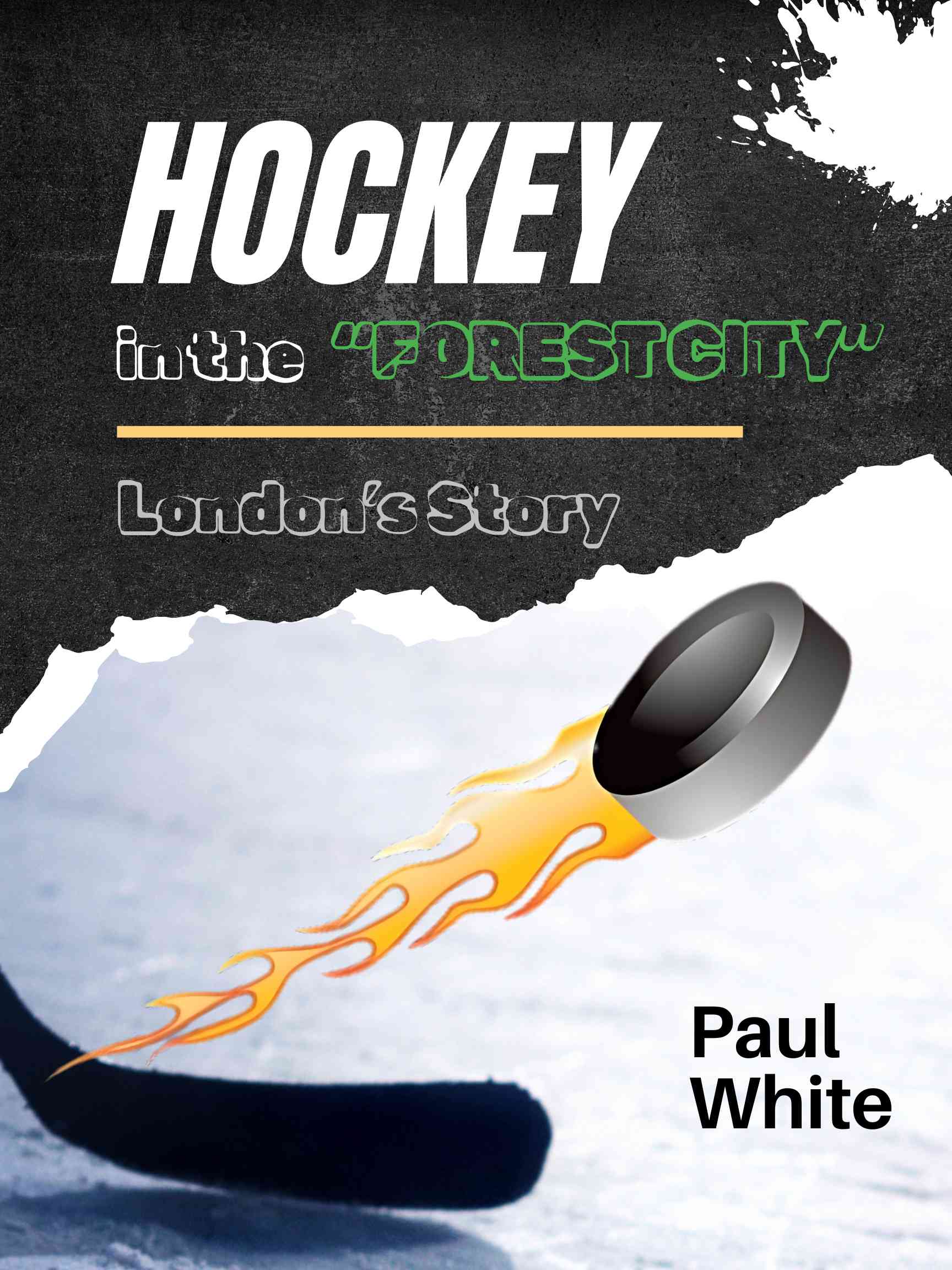"Cyclone" Taylor: Hockey's First Superstar Was Born in Tara Ontario
"Cyclone" Taylor was hockey's first superstar. Born in Tara Ontario, he was involved in a controversy in Ottawa which still has not been resolved.
The world of sports is full of controversial moments. Perhaps the most widely known is the legendary home run by Babe Ruth when he supposedly pointed out to the bleachers before the pitcher threw the ball.
There have been moments of similar controversy in hockey but the first and perhaps the most talked about incident involved Fred "Cyclone" Taylor of Tara.
When Taylor left the Ottawa hockey team to play for the Renfrew Millionaires, he was vilified in Ottawa. On February 12, 1910, the occasion of his first match against his former club, the brash Taylor responded to the harsh comments by Ottawa fans and media, by saying he would skate through the entire Ottawa club backwards and score a goal!
He did score on a backhand shot but the evidence as to whether he skated through the entire team backwards is clouded in mystery.
Taylor, to his dying day, answered questions about the goal in a manner that would make the best politician envious. His response would never clearly confirm, or deny what actually happened.
Most suggest it never happened. Some propose that a defenseman from Ottawa spun him around and, while he had his back to the goalie, he shot the puck into the net.
One person claimed she had, in fact, been at the game and had witnessed the backward skating feat. This person was Charlotte Whitton, who later would become the mayor of Ottawa.
Whether Taylor scored the goal as he had predicted really does not matter. His abilities made him the greatest hockey player of his time. In fact, Milt Dunnell, the legendary Toronto Star sports reporter, wrote that Taylor was the Canadian equivalent of Babe Ruth, Red Grange and Jack Dempsey.
His salary, $5,250 for 12 games with the Ottawa Senators was more than the Detroit Tigers paid Ty Cobb, the greatest baseball player of the era when Taylor dominated hockey.
Fred "Cyclone" Taylor was born in Tara, Ontario, on June 23, 1884 (some records show June 24) and controversy began early in his career. When he was five years old, he said, "I pinched my sister's skates. I got the dickens for it afterward, but it was worth it."
Taylor later credited his swift skating style to Jack Rigg, a barber in Tara, who taught him speed skating.
At age seven, Taylor moved with his family to Listowel, Ontario. This event has led to confusion among some hockey fans as to his birthplace. He played junior hockey in Listowel before turning professional.
Taylor's mother may have been one of the inventors of hockey pads.
Because he was smaller than most of the players he played against, his mother sewed layers of felt into his long underwear to provide some protection. Other players followed the example once they found out what he was wearing.
In 1903 Bill Hewitt, whose son Foster, would become famous for his broadcasts of hockey games, asked Taylor to join the Toronto Marlboroughs. When Taylor refused, Hewitt initiated action which would lead to Taylor being blacklisted from the Ontario Hockey Association.
In 1904, Taylor turned professional with Portage la Prairie, Manitoba, in the International Hockey League, at that time the only professional hockey league in North America. His first professional contract called for $25 per month in addition to paid room and board.
When that league folded in the autumn of 1907, Taylor moved to the Ottawa Senators, and then up the Ottawa Valley to Renfrew. In 1912, he moved to the Vancouver Millionaires, a team he led to a Stanley Cup victory over the Ottawa Senators in 1915.
Throughout his career, Taylor was the fastest skater of his time, "a real whirling dervish on ice."
Many people have been credited with handing Taylor the nickname “Cyclone.” One story relates how Governor General Earl Grey, after seeing Taylor score five goals in his first game with Ottawa, told an aide, “They should call that man the “Cyclone” his speed blew the other team out of the rink.”
Taylor holds the remarkable record of being named to the first all-star team in every league in which he played. He achieved this feat every year from 1900 to 1918!
To make the best use of his skating and scoring prowess, Taylor played the Rover position. He played nine seasons in the Pacific Coast Hockey Association. He scored 213 goals and had 118 assists in 169 games.
He scored more than 500 career points when his seasons with Ottawa and Renfrew are included in his statistics. This number is phenomenal when it is considered that assists were not often recorded in that era of hockey.
As well as winning the Stanley Cup in 1915, he also played in two other Stanley Cup finals with Vancouver, in 1918 against Toronto, and in 1921 against Ottawa.
In 1947, Taylor’s hockey achievements received the ultimate recognition, he was elected to the Hockey Hall of Fame.
Fred “Cyclone” Taylor of Tara, Ontario, died on June 10, 1979 in Vancouver, British Columbia.
A version of ""Cyclone" Taylor: Hockey's First Superstar Was Born in Tara Ontario," originally appeared in my Local History column in the December 23, 1996 edition of the Owen Sound Sun Times.
More Great Information Pages
About Owen Sound Hockey History
The 1920s Owen Sound Hockey Stars made there mark in amateur ranks and then many of them went on to careers in the NHL and other professional hockey leagues.
The 1927 Owen Sound Greys with a priest serving as coach named Jack Spratt and not one experienced defenseman were an unlikely Canadian National Hockey Championship team.
Benny Grant: Memorial Cup Champ grew up in Owen Sound and enjoyed a hockey career, which included a surprising turn of events that led to a stint in the NHL.
"Buck" Jones, like most Canadian boys, dreamed of playing in the NHL. Little did he realize that one day he would wear the sweater of an NHL club and would be the idol of youngsters like himself!
The Chin Brothers dominated in their hockey league which drew attention from the Detroit Red Wings and the Toronto Maple Leafs.
Ralph "Cooney" Weiland skated from a Memorial Cup championship in Owen Sound, to a Stanley Cup in Boston to fame as a U.S. college hockey coach.
The Crescent Club has a long history of sponsoring sports teams and leagues in Owen Sound providing consistent management and financial assistance to athletics.
"Cyclone" Taylor was hockey's first superstar. Born in Tara Ontario, he was involved in a controversy in Ottawa which still has not been resolved.
Doug Brindley: From Maple Draft Choice to a role in Slap Shot: a Memorial Cup champ; coached by Don Cherry; and he played in the WHA; what more could a Walkerton Ontario native ask for in a hockey career?
The Durham Yellowjackets hockey team was a force to be reckoned with in Ontario Intermediate hockey in the 1930s.
Goalie "Red" Henry: An All-Star Netminder: Another great Owen Sound goalie who played for the love of the game.
"Hap" Day was a Hall of Fame hockey player, coach and general manager as well as a life-long Toronto Maple Leaf.
Norm Locking Chicago Black Hawks & Former Owen Sound Grey was known for his hard and deadly shot in Al Capone's Chicago.
Harry Lumley spent his Hall of Fame hockey career tending the nets for four NHL clubs and he spent one period of a hockey game goaltending for a fifth NHL team.
Henry Kelso: Owen Sound Sports Legend not only contributed to the sporting life of his students, he also had a significant influence on the rest of their lives.
Junior Hockey Commentary: Should there be controversy about the use of non-local hockey players? This article was written in 1998 in response to a letter to the editor in the Owen Sound Sun Times.
Meaford Knights Hockey: The 1953-54 Championship Knights' line-up had of several pairs of brothers. Many felt that the brothers made a winning difference.
Newspaper Sports: Owen Sound Hockey History was detailed in the pages of the Owen Sound Sun Times in detail in the days before the radio and television eras.
Owen Sound Hockey's early history some references suggest started in the 1880s. However there are records of organized hockey teams beginning in the early 1900s.
Owen Sound was a Hockey Hotbed in 1950-51: Their fans were hockey crazy during this OHA Senior A Championship season as their star-studded team marched to an Allan Cup victory.
The 1959-60 Owen Sound Greys: A Tough Act to Follow: Tragedy struck this hockey team of young men, yet they persevered.
The 1960s Owen Sound Greys Stars who went on to NHL action including Brian Perry, Doug Brindley, Jim Schoenfeld, and Jack Lynch brought Owen Sound a reputation as a hockey hotbed!
Owen Sound Attack: The arrival of this new OHL team is the latest chapter in the Owen Sound region's rich hockey history.
Owen Sound Goalies: Why does Owen Sound produce so many fine goaltenders? There must be something in the water!
Some Great Owen Sound Greys. The history of this hockey team is a story of players who were not only local boys, but came from many locations to hone their skills.
Owen Sound Hockey Heritage stretches from rural farmhouses on Saturday night to backyard rinks to cheering for local hockey successes and hockey heroes.
Owen Sound Junior Hockey History began almost one hundred and twenty years ago and is rich with championship teams, great players, and dedicated fans.
Owen Sound's New Arena in 1938 opened a new era in Grey and Bruce counties with the first artificial ice making machine in western Ontario north of Kitchener.
Owen Sound Platers: Ray McKelvie the quiet and knowledgeable leader behind the success of the 1999 hockey team.
Pat McReavy enjoyed a long hockey career which brought him three championships, the Stanley Cup, the Allan Cup and a World Hockey Title.
Paul MacDermid, born in Chesley Ontario, through hard work and determination enjoyed a 12 year NHL career, before keeping junior hockey alive in Owen Sound by working with a group citizens to purchase the Attack OHL franchise.
"Red" Armstrong, a fiery spirited hockey player, known more for his fierce checking than his scoring prowess surprised even himself on his first NHL shift.
Red Leckie was more than a good hockey player. He played for the team, not for himself. Outside hockey, he responded when he saw a need in his community.
Southampton hockey history in the early years featured a distinct line of defense in the local arena, and stories of interesting "road" trips.
Tommy Burlington: the Greatest North American Never to Play in the NHL captured scoring titles in every league that he played, bringing comparisons to NHL greats.
Owen Sound Hockey History is rich with stories of championship teams, star hockey players, and community support.





